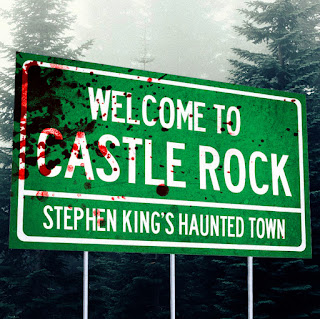Most of my writing is fairly contemporary, as in it happens in a world I live in or have lived in. Maybe the years are different, but in general, it's all about known quantities: There are no fire-breathing dragons, warp drives aren't a thing, witchcraft is ritual rather than magic, etc. This is the world I know and love, and that's why I write about it. I have dabbled in sci-fi, and I do have a fiction-fantasy series that needs extensive work, but in general my writing dwells here on Earth. That being said, what are the rules for writing about life on Earth?
The first thing one must concern themselves about is writing about real things in a fictitious manner. If I was to write about the town where I grew up, for example, I could run into a bunch of problems if my stories - even as fiction - associated the town name with bad events or disreputable people (and they would). However, that rule changes when a location becomes more publicly recognized. Technically, I was born in Chicago, and that is a different situation for writing as it is well storied and has a broad spectrum of association, versus my little hometown of [redacted].This is where things get nasty. If I want to write a fictitious work about things and events that happened during my childhood, I have to fictionalize it to a reasonable degree while still keeping it within the realm of the plausible. For example, close to where I live is a famously haunted woods (if you believe in haunted things), and there are many stories surrounding everyone's favorite forest preserve, [redacted]. As a writer, I can find a way to tell that story, but it needs to be sterilized just enough to establish a reasonable degree of doubt as to whether or not that was my point of reference. With the stories, names would need to be changed, street locations altered, and perhaps even the outcome of the story tweaked a little as to not borrow too much from reality.
Now, certain things we can take for granted when writing fictionalized versions of true stories - the whole no dragons, no warp drives thing is still in play. The environment can still have the same feeling and convey whatever sense of mood is necessary, but exacting details are best washed out. Anyone who reads any of Stephen King's work and knows their way around Maine can get a feel for the locations that inspired a particular story. However, King created a fictionalized version of Maine to set his stories. Don't go looking for Castle Rock - you'll never find it.
In general, the rule for fictionalizing a true story boils down to what you might see in a Law & Order episode: Some things might click into a particular story or event, but things like personal reputations and identities cannot be pinned down specifically. And if that means making up a little town of Lake Grove, Illinois to tell the stories that happened in [redacted], then that's a little bit of reality you can make up on your own. No dragons, though.







